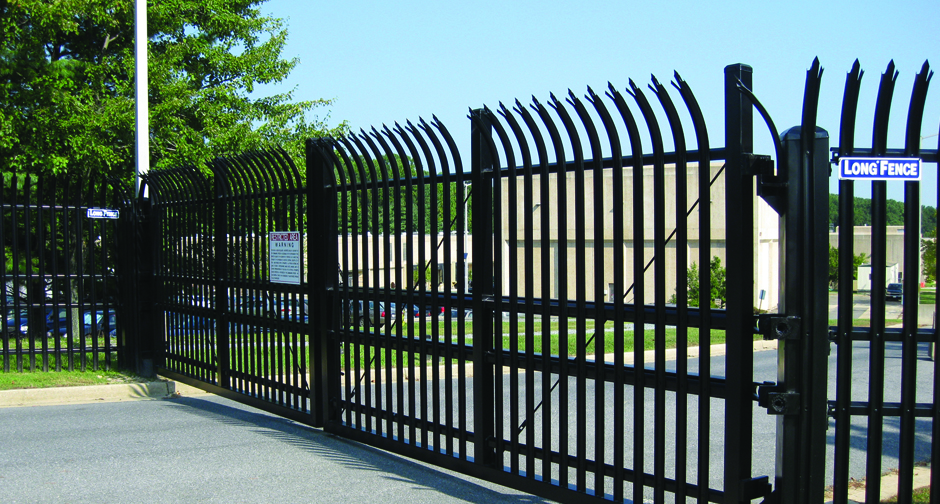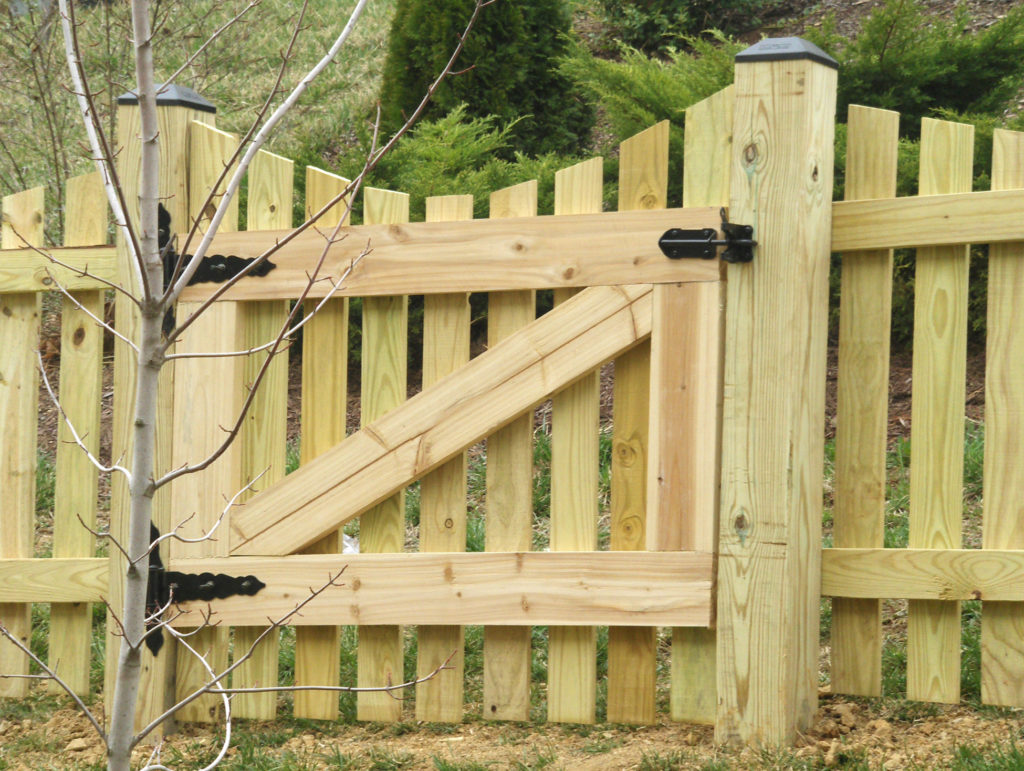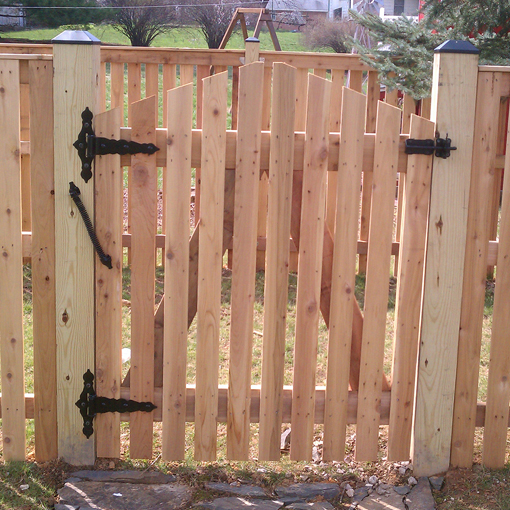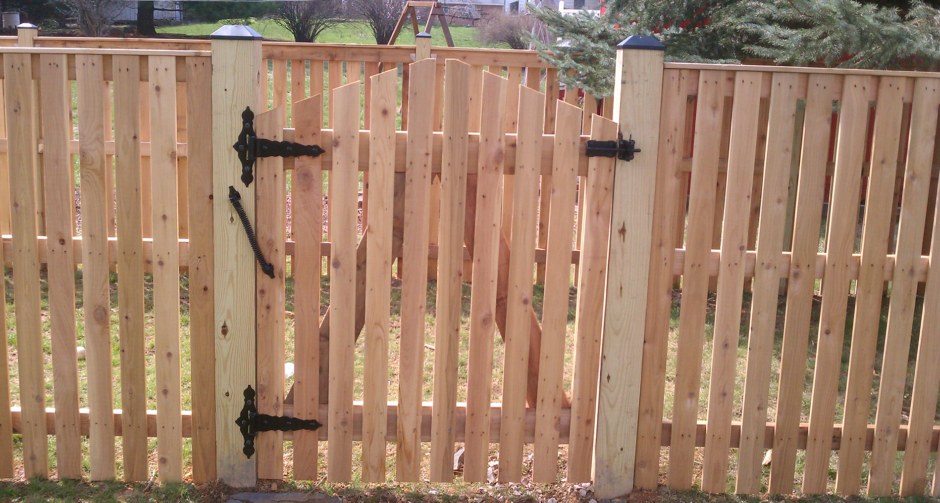There are all kinds of reasons to install a fence around your property. Fences add privacy, they add security, and they can also add beauty. But when it comes to choosing a fence gate design, there’s a whole new slew of questions you need to ask. Because a fence is great, but with no way to bypass it, all you’ve done is lock yourself in your home. Choosing the wrong fence gate, though, can undo all the hard work put in by the rest of the fence.
4 Questions You Need to Ask When Choosing a Fence Gate Design
How Hard Is It To Get Through?
When it comes to buying a fence gate, homeowners often focus on factors like aesthetics and durability, but it’s important to also consider how hard the gate is to get through. After all, the gate represents the point of minimum security in your fence. If it’s too easy to open, it can compromise the overall security of your property.
So, why is it important to ask yourself how hard the gate is to get through? Well, it all depends on what you’re trying to achieve with your fence. If you’re primarily concerned with keeping in dogs and small children, then a gate that’s easy to open with a simple thumb latch might suffice. As long as the latch is located too high for little ones to reach, you should be able to maintain the security of your fence without worrying about anyone accidentally getting out.

However, if you’re trying to keep out trespassers or other unwanted visitors, then a more secure gate might be in order. In this case, a simple thumb latch won’t cut it. Instead, you might want to consider a gate with a lock, a keypad, or even an automated sensor. These types of gates can provide an extra layer of security that will help keep your property safe from intruders.
Of course, it’s important to balance security with convenience. A gate that’s too difficult to open can be just as frustrating as one that’s too easy, and it can make it difficult to access your property when you need to.
Question #2: Form, Function, or Both?
When it comes to purchasing a fence gate, homeowners are often faced with the question of whether to prioritize form or function. Should the gate be a statement piece that showcases the homeowner’s personal style, or should it be a practical and unobtrusive element that blends in seamlessly with the rest of the fence? The truth is, it depends on the specific needs and preferences of the homeowner.
For example, if you’re looking to make a statement with your front gate, then you might want to choose a gate that incorporates decorative elements like symbols, initials, or even a fantastical creature. A wrought iron gate with intricate scrollwork can add a touch of elegance to your home’s entrance, and it can make a bold statement about your personal style.
However, if you’re more concerned with security and privacy, then a rear or side gate might require a different approach. In those instances, it’s often better to choose a gate that blends in with the rest of the fence. This can make the gate harder to notice, which can add an extra layer of security to your property. A gate that is subtle and understated can help deter potential intruders, as they may not even realize that there is a gate there in the first place. This approach also works well if you want to maintain a consistent look and feel throughout your entire fence.
Of course, there are times when it’s possible to have both form and function in a gate. A gate can be both a statement piece and a practical element that meets your security needs. For example, a gate with a decorative pattern that also incorporates a lock or a keypad can provide both visual appeal and peace of mind.
Question #3: How Many Gates Will You Have?
Most fences tend to have at least a few gates, such as a side gate that leads from the driveway to the front walk or a rear gate that allows you to access the backyard from a path through the woods. But how many gates will you have, and how will they be used?
First, you’ll need to decide how many gates you need for your property. Will you have just one main driveway gate, or will you have multiple gates that allow for different entry points? Will all your gates be the same size and style, or will you have a mix of main gates and smaller, walkway gates for pedestrian access?

Once you’ve determined how many gates you need, you’ll also need to think about the level of security you want for each gate. For example, if you have a main gate that leads into your driveway, you might want to invest in a gate with a lock or a keypad for added security. However, if you have a smaller pedestrian gate that leads to your backyard, you might not need the same level of security.
It’s also important to consider the placement of your gates and how they will be used. For example, if you have a gate that leads to a busy street or sidewalk, you might want to invest in a gate that is more secure and difficult to open from the outside. On the other hand, if you have a gate that leads to a secluded area of your property, you might not need the same level of security.
Question #4: Should You Keep Nature in Mind?
One important factor to consider is the climate in your area. If you live in a region with harsh weather conditions, such as extreme heat or cold, heavy rain, or strong winds, you’ll need to choose a gate that can withstand those conditions. For example, a gate made of wood might not be the best choice in areas with high humidity, as it can warp or rot over time. A metal or vinyl gate, on the other hand, may be more durable and resistant to moisture damage.

Another factor to consider is the natural surroundings of your property. If you have large trees or bushes near your fence line, you’ll need to choose a gate that can accommodate their growth. A gate that is too close to a tree or bush may become damaged or obstructed as the tree grows, so it’s important to leave enough space between the gate and any nearby vegetation.
If your property is located in a particularly wooded area, you might also want to consider a gate that blends in with the natural surroundings. A wood gate can create a seamless transition between your property and the surrounding landscape.
These are, of course, just a few of the issues that can crop up when it comes to choosing the proper gates for your fence. If you need help, or you simply have questions you want the experts to field, all you have to do is contact us today!
Read More:
What Should You Consider When Deciding on the Right Chain Link Fence Gate for Your Property?

